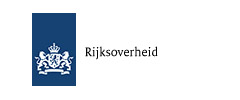WECF says “no time to lose” as Rio+20 summit negotiations begin in Brazil
Climate change exacerbates droughts, floods, and existing vulnerabilities. The gap between the rich and the poor is growing, social unrest is on the increase, and governments are less and less able to address both economic and environmental crises.
13.06.2012 |WECF news
“Rio+20 could be our last chance to mobilize all the world leaders together with civil society that are needed to agree upon strong legally binding measures to assure the necessary major shift in production and consumption patterns – a real paradigm shift away from greed and growth, and towards societies based on the concept of living well in harmony with nature”, human rights and gender equality” says Sascha Gabizon, executive director of WECF . She continues “we need to act urgently as the earth ecosystems are being pushed beyond the point of return.”
WECF (Women in Europe for a Common Future), together with partners from the Women’s Major Group , is co-leading the women’s delegation participating in the Rio+20 Sustainable Development summit in Brazil,
DOWNLOAD HERE THE CALENDAR OF WECFs EVENTS IN RIO
Key Messages WECF is bringing to Rio+20:
- We have no time to lose; We need to see concrete agreements come forward in the coming 10 days.
- Financing Sustainable Development from new public funds; Governments need to agree on new and additional financial instruments to raise public funds, not from increased borrowing, but based on a re-regulation of the financial markets, a global effort to close off-shore tax havens, agreement on a Financial Transaction Tax, and re-direction of at least 1% of annual defense and military budgets to a global fund for sustainable development.
- Women’s equal rights - now! Women are the majority of the poor – focus on women in poverty eradication, give women equal rights! Governments in Rio should agree to women’s rights to property and inheritance and to set concrete targets for women in leadership positions worldwide - 40% by 2020. Every day 2000 women die because they do not have access to sexual and reproductive health and rights, this must be prevented through agreement in Rio on sexual and reproductive rights.
- Phase-out nuclear energy by 2020 worldwide! After Fukushima, everyone knows that we cannot gamble with our lives and our planet! Japan has shown that it is possible, as of May 2012, they have shut down all of their nuclear powerplants– and there have been no blackouts! Governments at Rio+20 should agree on a fast-track phase out of nuclear energy by 2020.
- Mandatory substitution of harmful chemicals – starting now! Women and their children are exposed to harmful chemicals which do irreversible damage to their health. We cannot contaminate another generation. We need a mandatory substitution of safe chemicals to replace Endocrine Disrupting chemicals such as Pthtalates and Bisphenol-A as well as a moratorium on nano-technology in children’s products.
- Zero Waste towards a cradle-to-cradle economy before 2030: Governments need to agree to halt dumping of toxic waste in developing countries, and to make corporations liable for paying for safe disposal and recycling of waste containing harmful substances. Corporations must have the obligation to take waste containing harmful substances back. Developing countries are not dumping grounds. Governments should support a worldwide ban on toxic landfilling by 2030. Promote products which do not contain dangerous substances and can be fully re-used and recycled.
- Ban chrysotile asbestos now and have industry pay for safe clean up! Every year more than 100,000 people die from asbestos exposure. The only way to protect humans from asbestos, is to substitute other products for asbestos now! It is our moral imperative to prevent many hundred thousands of deaths. Ban asbestos now and assure safe abatement and waste disposal!
- Global Social Protection floor to eradicate poverty. Eradicating poverty has to focus on women and should be based upon a human rights approach. A social protection floor benefits women in particular, as it would cover women working in informal and precarious sectors, or doing unpaid domestic work – not only women in more formal employment. The social protection floor goes beyond simple “income support” and includes access to basic health, education and housing services, including access to water. The cost of the social protection floor is low – 1 to 2% of the GDP of each country. Governments in Rio+20 should agree on the global social protection floor as proposed by the ILO.
- Protect Indigenous people’s rights, protect local communities from landgrabbing and extractive industries. Indigenous peoples make up 5% of the worlds population, yet they protect an estimated 80% of its biodiversity. The rush for resources of the global North, - more rare metals, more oil, more uranium, more old-growth trees, more palmoil, more coffee – cause indigenous peoples to be threatened every day with expulsion from their lands, territories and resources (“landgrabbing”) for production of commercial crops. Governments at Rio+20 should agree on actively seeking the free, prior and informed consent (FPIC) of indigenous peoples as outlined in the UN Declaration on the Rights of Indigenous Peoples (UNDRIP) as a basis for any commercial development, in particular mining. WECF call for no-go-zones for mining and a moratorium on new uranium mining sites
- Agree on the human right to a healthy environment at Rio+20. Human rights should be the basis for post 2015 global development goals. Governments in Rio will decide on a process for Sustainable Development Goals, that will be developed alongside new Millennium Development Goals (MDGs).
WECF says, “We need to learn from the limitations of the MDGs. Global goals must be human rights-based. WECF calls for the human right to a healthy environment and the human right to safe and clean drinking water and sustainable sanitation for all, by 2030.
As organising partner for the “Women’s Major Group,” WECF is responsible for the coordination of all the civil society delegations representing women’s organisations and being the liaison with the United Nations secretariat. WECF and its partners will be organising daily briefings of the Rio+20 Women’s Caucus, in Pavilion 6, room 1, from 15:00-16:00 hours, every day. WECF will ensure a fair distribution of passes to the more restricted plenary rooms. WECF will also facilitate the active participation of its member organisations – both in high level round table discussions and in giving interventions during the plenary sessions. In this way WECF assures that the voice of women worldwide will be heard.
Rio+20 Events organised by WECF
WECF is organising the following events at Rio+20, both at the official United Nations Summit, and at the “People’s Summit”.
Related News
Meet the Winners of the Gender Just Climate Solutions Award at COP24
On the 70th anniversary of the Universal Declaration of Human Rights, we awarded Gender Just Climate Solutions Winners at the climate negotiations in Katowice, Poland
11.12.2018
Invitation: Gender Just Climate Solutions Award 2018
10 December, COP24 Katowice
04.12.2018
Getting to the Future We Want
4-7 November, Brussels: European Environmental Bureau’s (EEB) Annual Conference
12.11.2018
GoodFood4All
WECF and partners all over Europe start GoodFood4All Campaign
06.11.2018
#Ruralwomen: join our Women2030 campaign!
15.10.2018







































